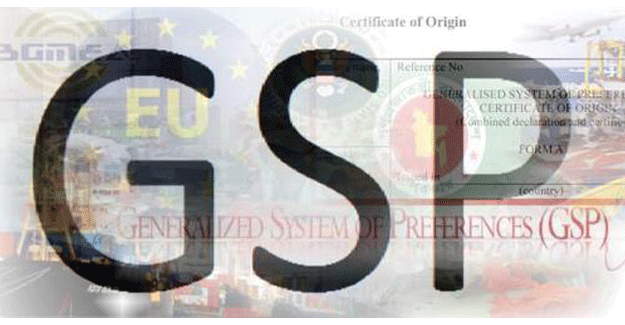Bangladesh Garment Exports Face Stiff Duty As Trump Admin Denies GSP
Bangladesh Garment Exports Face Stiff Duty As Trump Admin Denies GSP

The Bangladesh garment industry faces stiff tariffs in the US markets as their government has yet again blocked access to Bangladesh's trade privilege with the current President Donald Trump administration’s move to proceed on its trail to enforce trade preference programme’s eligibility.
It may be recalled that way back in June 2013, Bangladesh lost its Genralised System of Preferences (GSP) privileges due to suspension by the US. The suspension of the facility was a move put in place after the Rana Plaza building collapse in Bangladesh. The US had then cited poor labor rights and unsafe working conditions in Bangladesh’s garment factories.
The then US President Barack Obama’s administration had framed a set of 16 conditions to be adhered to if Bangladesh wanted to regain the GSP trade privilege. Since then Bangladesh garment industry has come a long way. It performed due diligence in conforming to the conditions before it communicated the compliance adherence to the United States Trade Representative (USTR). Despite the repeated gestures from Bangladesh, the current US administration has refused to restore the trade privilege persisting with the view that Bangladesh’s labor rights are poor.
Consequently, in the 2017 review that took place on GSP Bangladesh failed to emerge out of the blues from the suspended countries list which were denied the privilege. The stalemate continued despite the fact that the US government took some active decisions in 2017 pertaining to GSP eligibility. The countries that came out of the woods because of this decision include Argentina, Gambia and Swaziland. In case of Argentina, the GSP was reinstated after disputes over arbitration were settled amicably between the two countries.
While the USTR spokesperson said the administration had given a clarion call to all countries to either adhere to the standards prescribed or ship out. “We plan to strictly enforce our eligibility criteria for GSP and ensure that the countries wanting access to this privilege play their part to hilt,” he added.
The Bangladesh government, on its part, reacted stoically with a spokesman from the commerce ministry stating “We are resigned to the denial of the GSP privilege as we observed that even after our repeated submissions confirming adherence to stipulated set of requirements, the USTR is coming up with new conditions to deter the restoration.”
The official pointed out that right now the United States was pressing for the reform of labor laws for the garment and other factories that were located in Bangladesh’s Export Processing Zone (EPZ). The pressure is on despite the fact that Bangladesh government has sought the International Labor Organization’s (ILO’s) ratification on the proposed reforms it intends to carry out in the labor sector by submitting its draft copy on the subject.
As of now Bangladesh is being globally lauded for the safety norms it follows at the work place post inspection by the two foreign agencies Accord and Alliance who were monitoring their progress on this count.
The problem is compounded by the fact that Bangladesh currently has the US as its single largest export destination. Poignantly, 97 percent of goods originating from Bangladesh is permitted duty free entry into the US markets. Unfortunately however, garments are not included in the 97 percent that is permitted. Considering the fact that garments are the main export items of Bangladesh, the exclusion of garments from the package proves irksome to the local garment exporters. The 97 percent package was in place because of the WTO ratified decision that was taken at the 2005 Hong Kong Ministerial meeting.
Currently, Bangladesh’s garment exporters are faced with a duty of 15.62 percent in the US markets.



 textileexcellence
textileexcellence 







